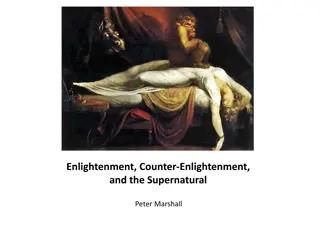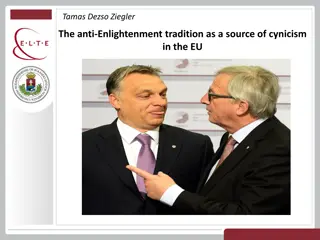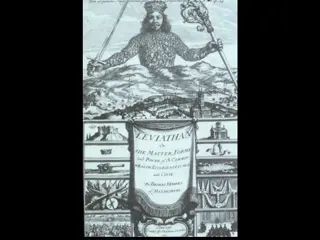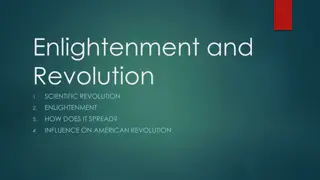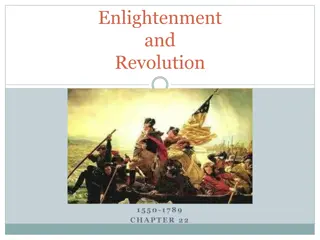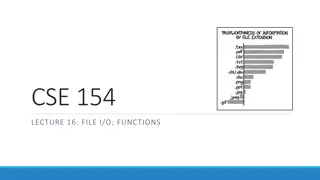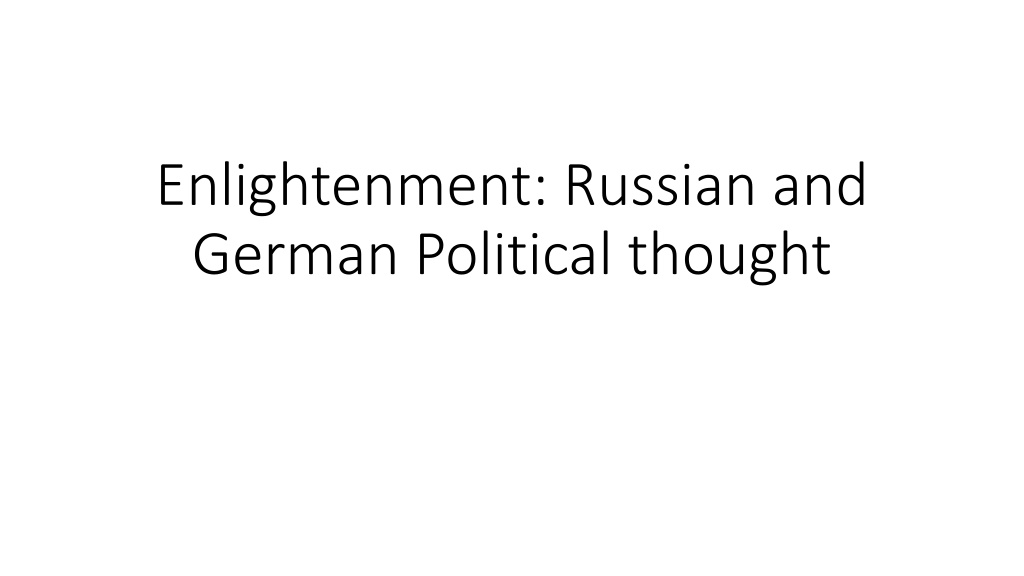
Russian and German Political Thought in Enlightenment Era
Explore the evolution of Russian and German political thought during the Enlightenment period, highlighting key philosophers and movements such as the rise of Russian philosophy and the influence of European rationalism on Russia. Discover how figures like M.V. Lomonosov and A. Radishchev shaped philosophical discourse in Russia, while classic German philosophers like Kant and Hegel contributed to the development of German Enlightenment thinking.
Download Presentation

Please find below an Image/Link to download the presentation.
The content on the website is provided AS IS for your information and personal use only. It may not be sold, licensed, or shared on other websites without obtaining consent from the author. If you encounter any issues during the download, it is possible that the publisher has removed the file from their server.
You are allowed to download the files provided on this website for personal or commercial use, subject to the condition that they are used lawfully. All files are the property of their respective owners.
The content on the website is provided AS IS for your information and personal use only. It may not be sold, licensed, or shared on other websites without obtaining consent from the author.
E N D
Presentation Transcript
Enlightenment: Russian and German Political thought
Russian Political Philosophy The rise of Russian philosophy was also connected with the foundation of the first higher education institutions, where philosophy was taught.
Russian Philosophy of the 17th-18thcenturies. Interesting:: Russia, transforming from medieval to modern times, has gapped some features of Renaissance and Reformation. Great influence of the changes of Peter the Great. By the 17thc. strong relations with Europe, as well as the influence of Enlightenment. At the same time there appeared two tendencies: influence of the European rationalism and the rise of theological thought in Russia.
Russian Philosophy of the 17th-18thcenturies. By the 18thcentury appearance of a UNIVERSITY PHILOSOPHY later changes to the Russian philosophical thought. The most innovative were social and political philosophies of Russia (V. Tatischev; S. Desnitzky) Reaction to these innovations was made by the old aristocratic nobility. Influence of the European mysticism (the Russian masonian branch).
Russian Philosophy M.V. Lomonosov - Studied in Germany; - The Russian way is absolutism of power.
Russian Philosophy A. Radishchev - Criticism of Catherine s the Great absolutism; - the reaction of hers: excursion to Irkutsk; - A trip from St. Petersburg to Moscow
Classic German philosophy Kant and Hegel
Origins German Enlightenment of XVIII c.: Kant, Fichte, Schelling, Hegel, Feuerbach. "History as a whole is a progressive, gradually self-disclosing revelation of the Absolute." Late Enlightenment in comparison to France and England;
Germany Germany: weak in economy; Fashion for French authors in Germany, translations; Many French activists moved and worked in Germany, as a result: I. Lambert the New Organon
KANT 2 things please and surprise my soul: that is a sky full of stars, and the moral law inside a man, that makes him free.
Immanuel Kant Born: 1724, Konigsberg; Professor of metaphysics; Two periods in Kant s work: pre-critical and critical; Was influenced by French enlighteners; Imperatives (hypothetical and categorical) To Perpetual Peace ideas of the ideal state, globe and cosmopolitanism; Morality comes first (differs from Machiavelli); Deontology
I. Kant Theory of a duty: a duty is not a boring obligation, but it is an act of freedom, or a free will. Moral act is an act against natural egoism. 2 types of human acts: moral and legal; A moral act is often an act against your interests; Moral laws should be applied equally to everyone, regardless of his physical, social, other features. There are many reasons to justify bad acts, but there are now reasons for committing a good act, - it is done by duty. 1. Act as if your will could become a legal basis for everyone; (categorical imperative) 2. A man should always be an aim, not the mean. (is not, unfortunately, a law of history)
I. Kant fiat justitia pereat mundus ( Apply the law even if the world dies ); State is a unity of many, subjects to the laws; Constitutional monarch with powers division; Reforms, not revolution! To Perpetual Peace (idealism): - Agreements should exclude controversial issues; - States are not obtained as private property; - Permanent armies should be dismissed; - Non-interference into the internal affairs of a state;
G. F. Hegel A bourgeois society can form a moral point of view; 3 stages of development: law - Rome; morality medieval centuries; conscience - modern bourgeois society; Work: Philosophy of Law : - Abstract law; - Morality; - Conscience.
G. F. Hegel 1. 2. 3. 4. What is dialectics? Make a dialectical analysis of the state Make a dialectical analysis of the history 3 laws of Hegel s dialectics




